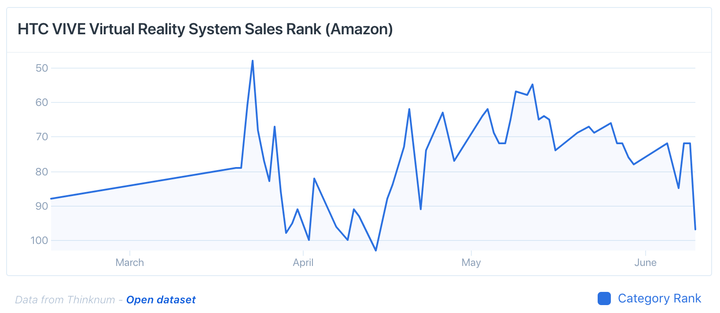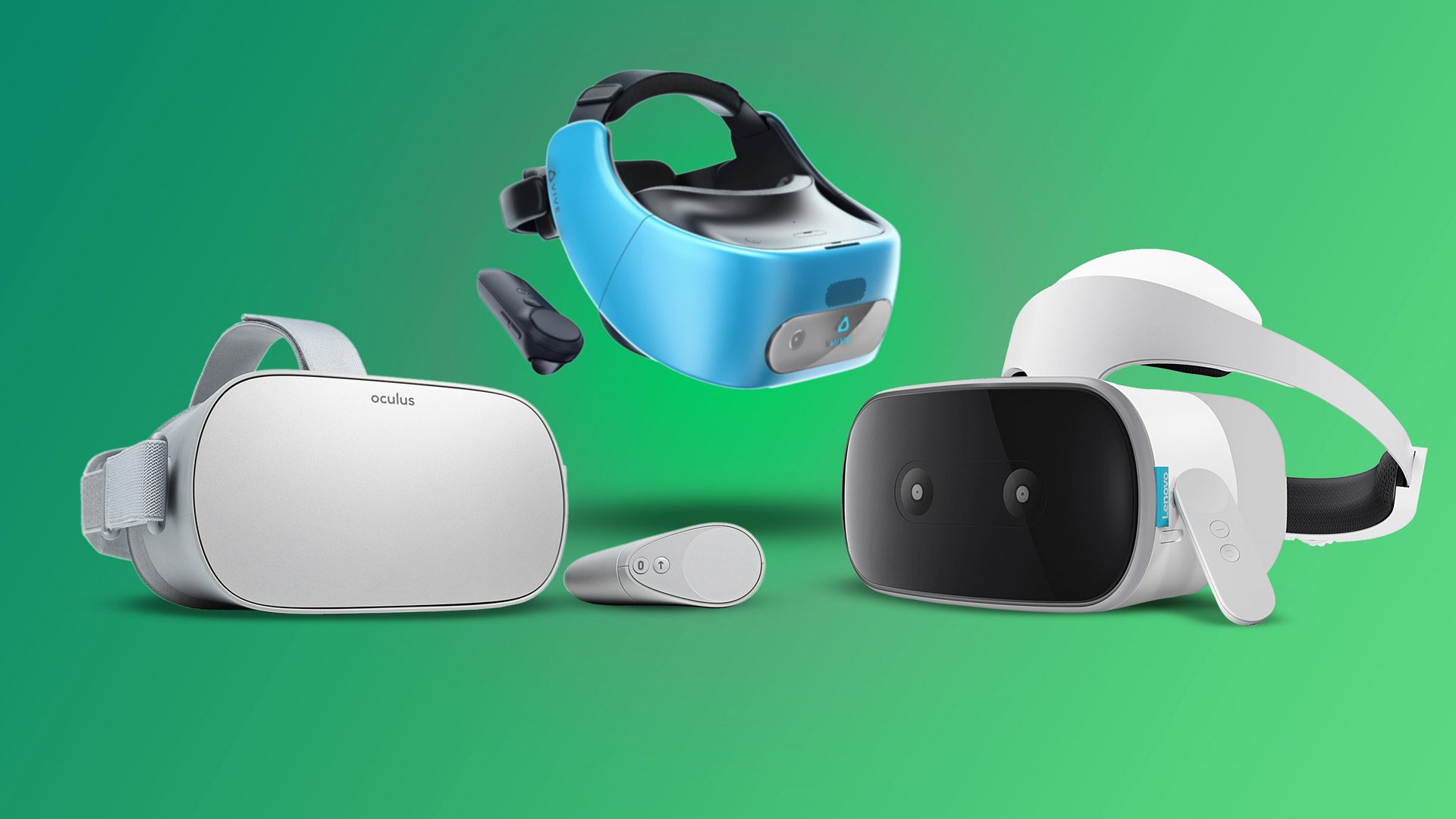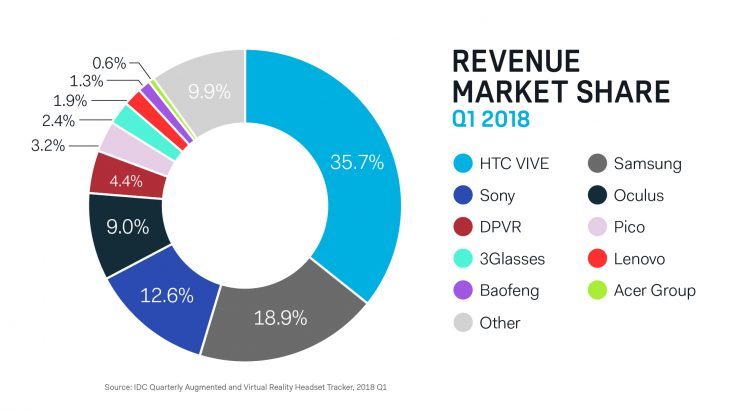Digital Trends recently published a report entitled ‘VR is in a tailspin, and the sales numbers prove it’. It seems HTC has taken umbrage with the article’s thesis in its newest blog post however, which pushes back against some of the article’s claims, saying it’s “not the whole story.”
Very few major manufacturers have released sales data on their VR headsets, with Sony being the exception when they said that PSVR had already sold over 2 million units back in December 2017. To fill the informational void, analysts typically offer up their best estimates, using third-party services to corral the numbers into what appears to be a solid answer to the question: how is ‘X’ market doing?
Freelance writer Joshua Fruhlinger, who occasionally writes for Digital Trends, used third-party Amazon sales data to back up his claim that consumers don’t care about VR anymore, saying it’s “crystal clear.” The entirety of Fruhlinger’s claims are based on Amazon sales data obtained by Thinkium, an analytics firm that runs a blog-style front end to sell its services, of which Fruhlinger is publisher. Amazon does provide a good watermark for how any given product is faring, but it’s not everything, HTC says.
The article cites a sharp decline in Vive’s ranking in the top-100 products on Amazon, which Thinkium data says was in the top-50 products at it height of popularity. HTC however punches back by reminding him that it’s actually been out of stock due to the shortage of a key component, which is why sales on the original Vive appeared to have slumped so rapidly.

The report also specifies Gear VR’s decline in sales performance on Amazon. HTC posits however that these sorts of VR experiences have become “less enticing,” and that Gear VR’s initial success was due to it being offered in promotional deals with new flagship smartphones, which have since cooled down.
HTC however doesn’t attempt to debunk the article’s claims surrounding PSVR or Oculus Go, which may be more of a reflection of its unwillingness to discuss direct competitors in polite company. Thinkium data puts PSVR at the mediocre 83 spot on Amazon, and Oculus Go falling from number seven to below 100 on the product ranking list since its launch in May 2018 (not October 2017 as the Digital Trends article reports).

This is fine, but the only thing to really put these contradictory claims to rest is verifiable sales numbers, something HTC has elected not to do in response to critiques. Instead, the company cites a different analytics firm to back up its claim that its internal HTC Vive team is leading the VR market, presumably worldwide.

While the Digital Trends piece comes stock with a grippy headline, in the end, Fruhlinger isn’t really saying VR is doomed by default, only that today’s VR headsets have failed to capture the promise of resounding sales—something most people knew from day one anyway. Case in point: only a few online VR games maintain healthy active user numbers, which is clearly due to a small install base relative to traditional consoles and PC gaming; PSVR, having sold 2 million units, pales in comparison to PS4 console sales, which have topped more than 73.6 million units since December 2017.
Despite supposedly slumpish hardware sales, companies like Facebook are throwing massive amounts of money at the next generation of VR, already having reportedly paid over $88 million in Seattle-area real estate this year alone for their new Oculus hub. Oculus prototypes, including the 6DOF standalone headset Oculus ‘Santa Cruz’ and a more recent 140-degree FOV, varifocal, eye-tracking PC VR headset prototype, show a clear pathway to the future of the next generation of VR headsets, at least from Oculus.
As for software, big investments in first-party titles and premium IP are either already here, or coming very soon. To name a few, Sony Japan Studio’s super engaging platformer Astro Bot: Rescue Mission is due out this fall, and Oculus Studio’s and Sanzaru Games’ Marvel Powers United VR (2018) just released yesterday. Oculus has also invested in Twisted Pixel’s upcoming action-adventure game Defector, and Insomniac Games’ upcoming open world adventure Stormland.
VR arcades are also growing at an unprecedented rate, with Bandai Namco expanding its chain of VR Zone Arcades to cities across Japan and the UK, and HTC providing most of the gear and software for China-based arcades thanks to their enterprise-focused game subscription service, Viveport Arcade. New York’s JFK airport just opened a number of Windows VR kiosks too, which are reportedly seeing round-the-clock usage thanks to the high-traffic area and general novelty of trying out a high-end VR headset for the first time.
So while the first generation of consumer VR has been touted as too expensive and too inaccessible, there are some constants here that bear summarizing: the investment is clearly there, the usecase is so unique we’re still exploring its potential both in and outside of the home, and it’s only going to get better, cheaper, more convenient as time goes on. It’s clear VR has had to play the long game from the very start too, so low adoption rates of the first consumer devices is only news to you if you haven’t been following the space.







